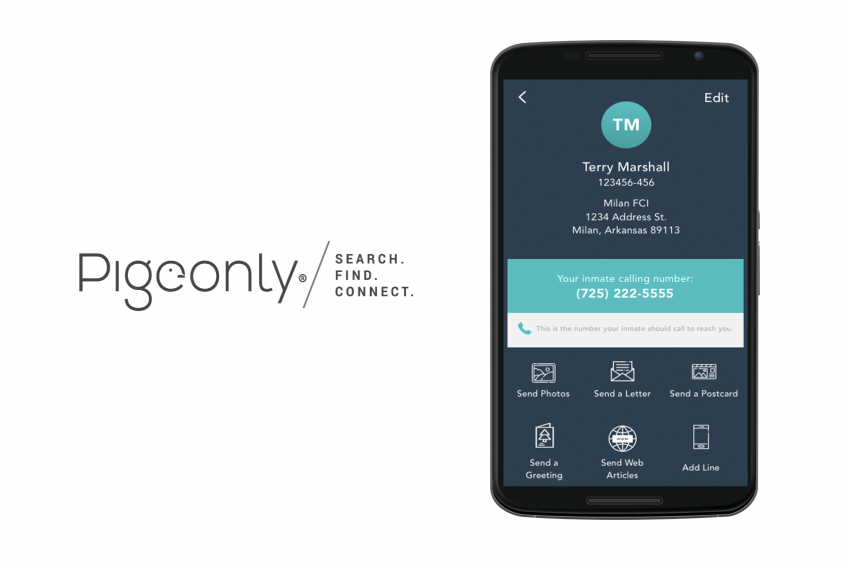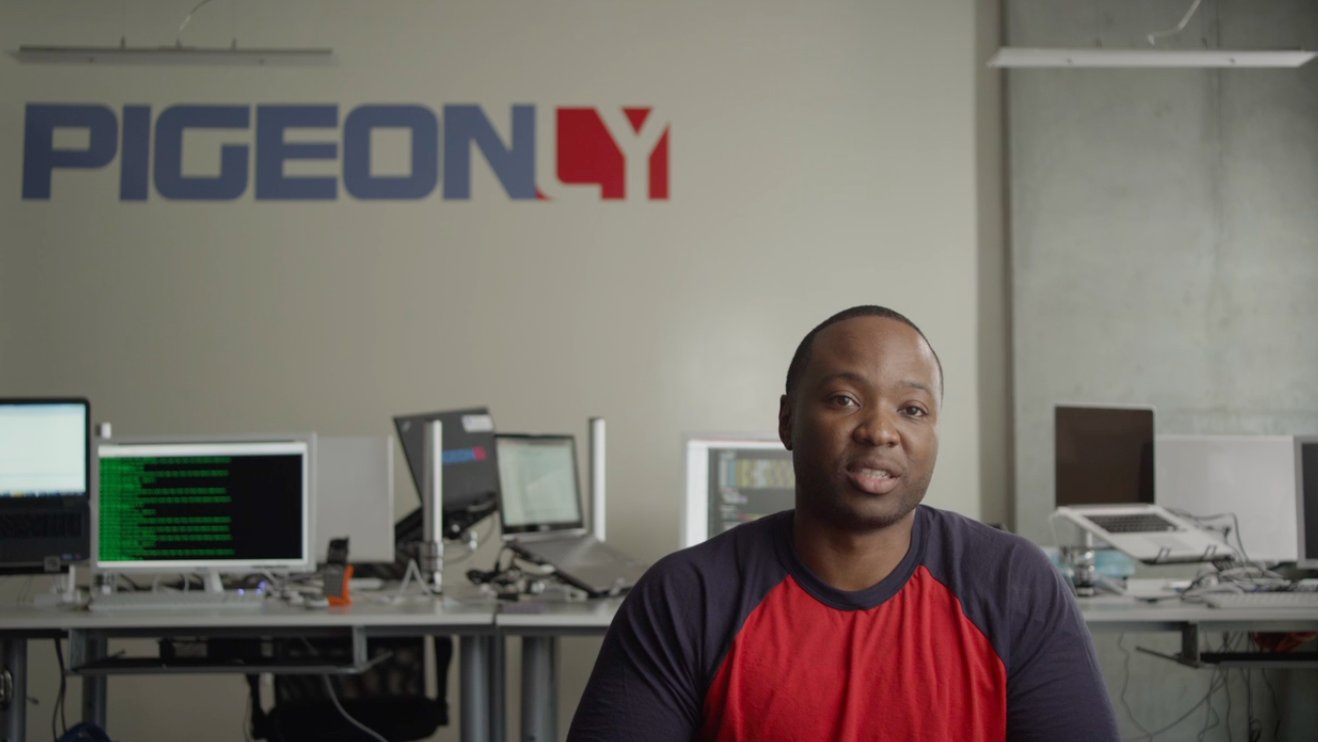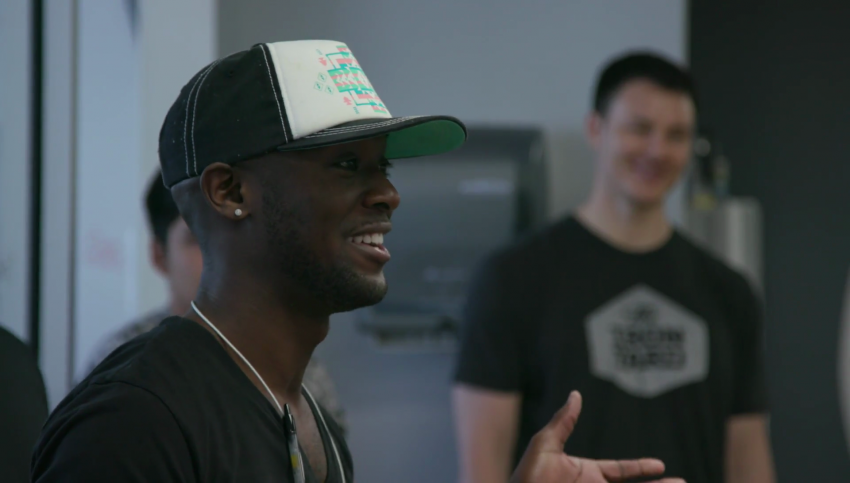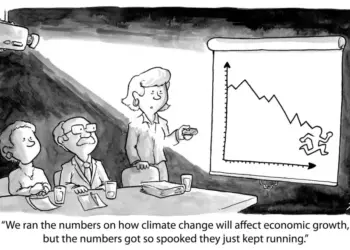It is known that prison occupants don’t exactly have access to luxurious living facilities or direct and instant interaction with the world beyond the walls that confine them, but what drives the CEO of Pigeonly, Frederick Hutson, is the cost of a basic telephone call, which goes at an approximate rate of 70 dollars for every 300 minutes. To relieve this, Frederick aims to provide a much more cost-effective communication service for inmates and their loved ones. Having had the opportunity to ask Frederick some questions, here’s what he had to say…
IN THE PHOTO: Frederick Hutson PHOTO CREDIT: Vice
How did you come up with the idea?
Frederick Hutson: Basically, the idea started back when I was in prison. I spent five years in federal prison for the distribution of marijuana. While I was there, I saw that there was a huge population of people that all had the same problem. When it came to communication, it was very expensive and difficult for us to stay in touch with family. So, once I was released and living in a halfway house, I reached out to my co-founder, Alfonzo Brooks, and pitched him my idea. I mentioned that 2.3 million people know about 20 million people on the outside and that we should create a platform that would make it easier for them to get photos. To this day, we still provide photo services and another five products. We cover everything from telephone calls to photos, letters, greeting cards, and more. Our mission is to make an easy and affordable platform that allows prison occupants and their loved ones to stay connected.
How difficult it is for inmates to have such a cost-efficient plan compared to everyone else?
F.H.: When it comes to telephone calls, prisons outsource from a single third party company. This party promises the institution a large tip to ensure that they are granted the contract. As a result, the company charges users an excessive amount to make up for the original expenditure. This system is inherently problematic and unjust, with those incarcerated, and their loved ones, paying the price. In federal prison, 300 minutes of speaking time costs around 70 dollars. Without a phone service provider, the cost can be cut down significantly to 15-19 dollars for 300 minutes.
Additionally, on the outside, everyone lives in a digital world. However, in prison, it is more analogue. They write a letter, print out photos, go to the post office and mail them. It is a very inefficient method of communication. We want to bridge the gap between the digital world and the analogue world.
IN THE PHOTO: Cofounder, Alfonzo Brooks PHOTO CREDIT: Vice
To bridge that gap, how do you convince the prisons to accept your product?
F.H.: We don’t work with the institution, and so, everything we build works outside the prison, in accordance with, but independent from their contract system. For example, if you use us to send photos, your photos will be packaged and prison-approved, and follow the same policies as if you would ship it to the prison yourself. Even the phone calls still work on top of the same existing phone system that is in place. The only difference is that when an inmate calls, they call the Pigeonly number, and we redirect that call to the family member’s landline or cell phone. We ensure we route the calls in the cheapest way possible, which is why we can charge low prices.
Since starting in 2012, what challenges did you face in creating a business?
F.H.: The hardest part of starting a business is being laser-focused on the problem you want to solve and not getting distracted by all the different opportunities you can pursue. When you go into your own business you have a grand vision of how you are going to change the world and how your idea is going to make that impact. While pursuing that vision, your mind becomes clouded and this can become problematic.
Don’t be afraid of being disciplined and focusing on your niche. A lot of people don’t like looking at the niche because they are afraid the market might be too small. But focus on that niche. Once you master it, then you can start expanding. If I had to do this all over again, that is what I would’ve done. Once you nail that, you have a strong foundation that you can build your grand vision upon.

IN THE PHOTO: Pigeonly Logo/Pigeonly App PHOTO CREDIT: Vice
Who would you say has been your biggest support with regards to building this company?
F.H.: By far, my team. Once you have an idea that develops into a business, you can’t sustain the company by yourself. People spend a lot of time pitching to investors and trying to build capital. I’ve spent more time pitching to my peers and the people I want on my team to support my vision. That is because I know having the right team will let me deter any storms I encounter. Now it is significantly easier to bring in capital and investors because we all want to be a part of something that is going to be successful.
IN THE PHOTO: Pigeonly Team PHOTO CREDIT: Vice
Are the members of your team young or do they have a broad range of age? Do you find that among your teammates there is a true interest to help others?
F.H.: The oldest person on our team is probably 35 or 36, with the average age at about 30 years old. Around 40 percent have entered prison three times, and about 60 percent of our team know someone in prison. Everyone who works with us is attracted to our mission and wants to make an impact on the world and the lives of their loved ones. We prioritized that goal during recruitment even above experience or talent. To them, it is more than just looking for employment after they pass a Free background check which today is conducted almost everywhere. They are people that understand what we are trying to build and why we are trying to build it.
Pigeonly is a unique name for a company. What is the meaning behind it?
F.H.: Our name has two aspects that contribute to its meaning. The primary aspect is that the pigeon is a very common bird, so common that we don’t even notice them anymore. After travelling to a lot of places, I noticed that in every place and country that I have visited, I have seen pigeons. People don’t notice them. In this way, our market is similar. There is a huge population of people that aren’t being given attention to and are forgotten about. Their loved ones are left to deal with this issue in silence because the whole topic is a taboo. You aren’t going to stumble across a general conversation of how their brother is in prison, their uncle is in prison, their wife, it is just not something you talk about. Secondly, the more literal aspect to its meaning is that the pigeon was used in the early days as a communication tool to deliver messages, like our product.
SEE RELATED ARTICLES:
MASS INCARCERATION FAILURE FULFILL RIGHT HEALTH












